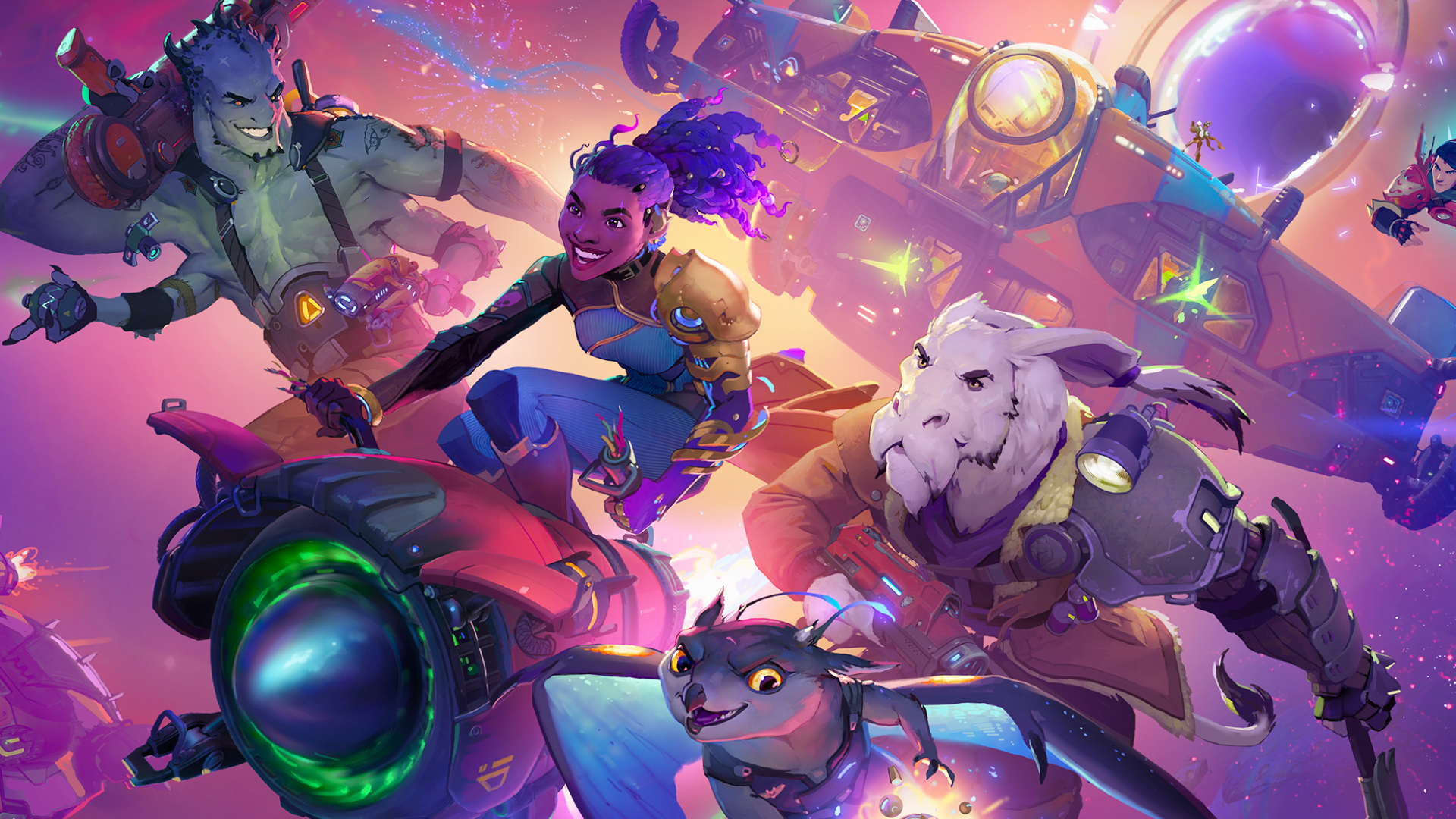The dialogue wheel was the worst thing to happen to RPGs, it's robbed us all for years, and I'm glad it's dying out
Emotions are more than just nice, sassy, and mean.
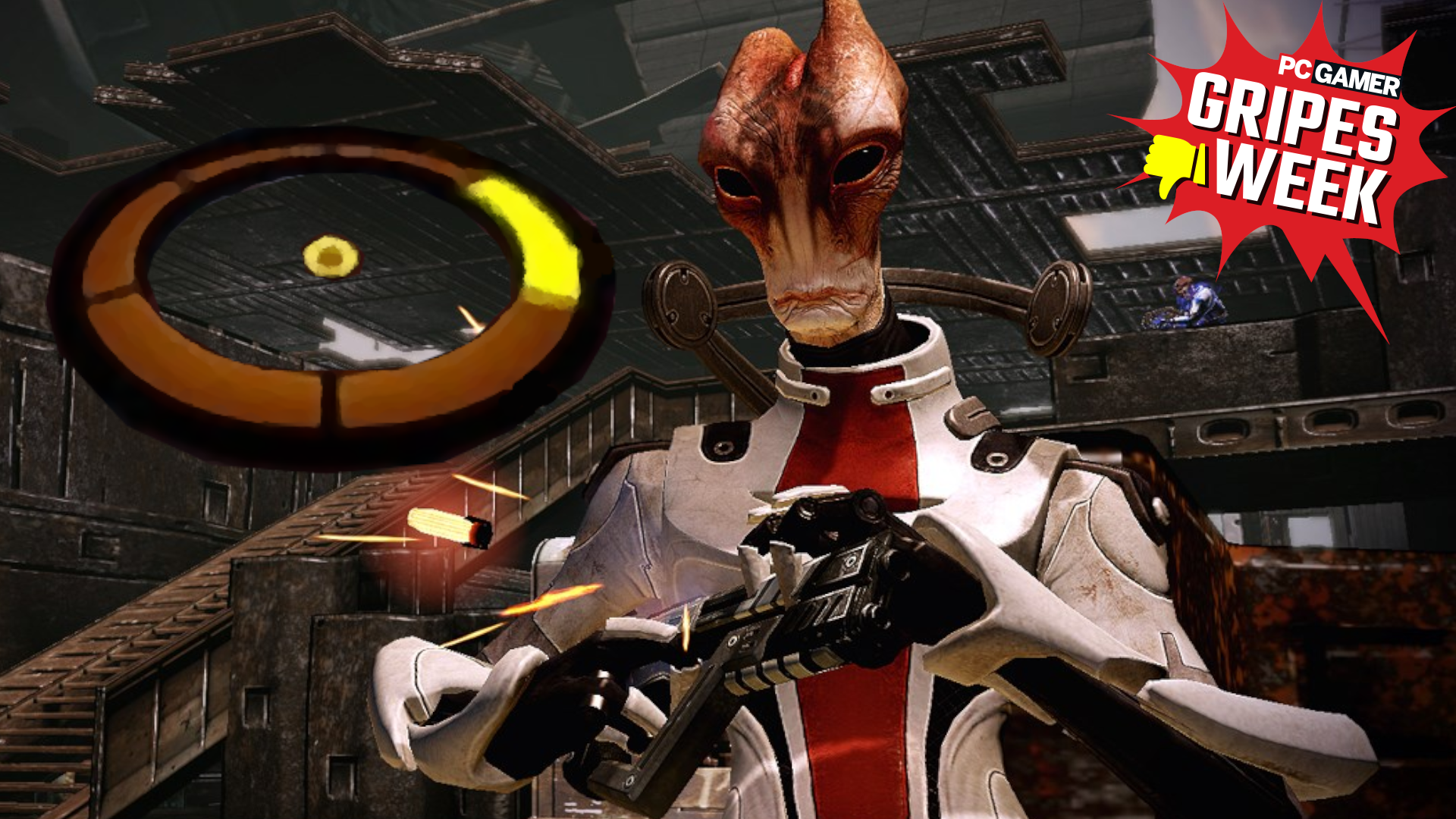

This week I've been: Writing too many words about my personal hatred of dialogue wheels (it is Gripes Week, after all), writing news by the bushel, and getting back into World of Warcraft and Final Fantasy 14 at the same time. Send help.
Last week I was: Informing the people of (deep breath) Llanfairpwllgwyngyllgogerychwyrndrobwllllantysiliogogogoch.
Also, talking to indie devs about the horrors of payment processor censorship, and discovering that a kawaii physics engine was actually widespread.
Roleplaying games are some of my favourites—partially for their ability to plunge me into a fictional setting, not just as an observer, but as an active participant. I get to choose not just how I interact with a story, but who my character is. How they fight, who they love, what they believe in. I can be in active conversation with a world of hundreds spun out of data and numbers.
And then BioWare's Mass Effect came along and said nah, piss on that, all these RPGs and their fancy words. What the gamers really want are three vague personalities! Three is enough for anybody!
Thus raised out of the depth were the three core character traits of RPG protagonists that would plague the genre for years—blue, sarcastic, and red. Sometimes even kind, sarcastic, and grumpy. Or, if you're lucky, blue, red, and a third thing of your choice. A triumvirate of vibes, each clearly signposted so that you don't have to think about the nuance of what you're actually saying. What a relief!
The common complaint (one I will echo, but not belabour because it's been repeated a thousand times over) is that the dialogue wheel could sometimes be misleading. The classic is Mass Effect's 'Time to shut you up!' prompt, which sees Commander Shepard waltz up and deck a reporter in the face.
This is a pain point, for sure, but not my main point of consternation. The issue is that the solution to this—rewording the prompt to match what your character's going to say or do—highlights the core tyranny of the dialogue wheel: Thinning your choices down to the bloody marrow.
Why is there a layer of separation in the first place? Are we afraid someone might read something twice? The sheer horror!
The illusion of free will
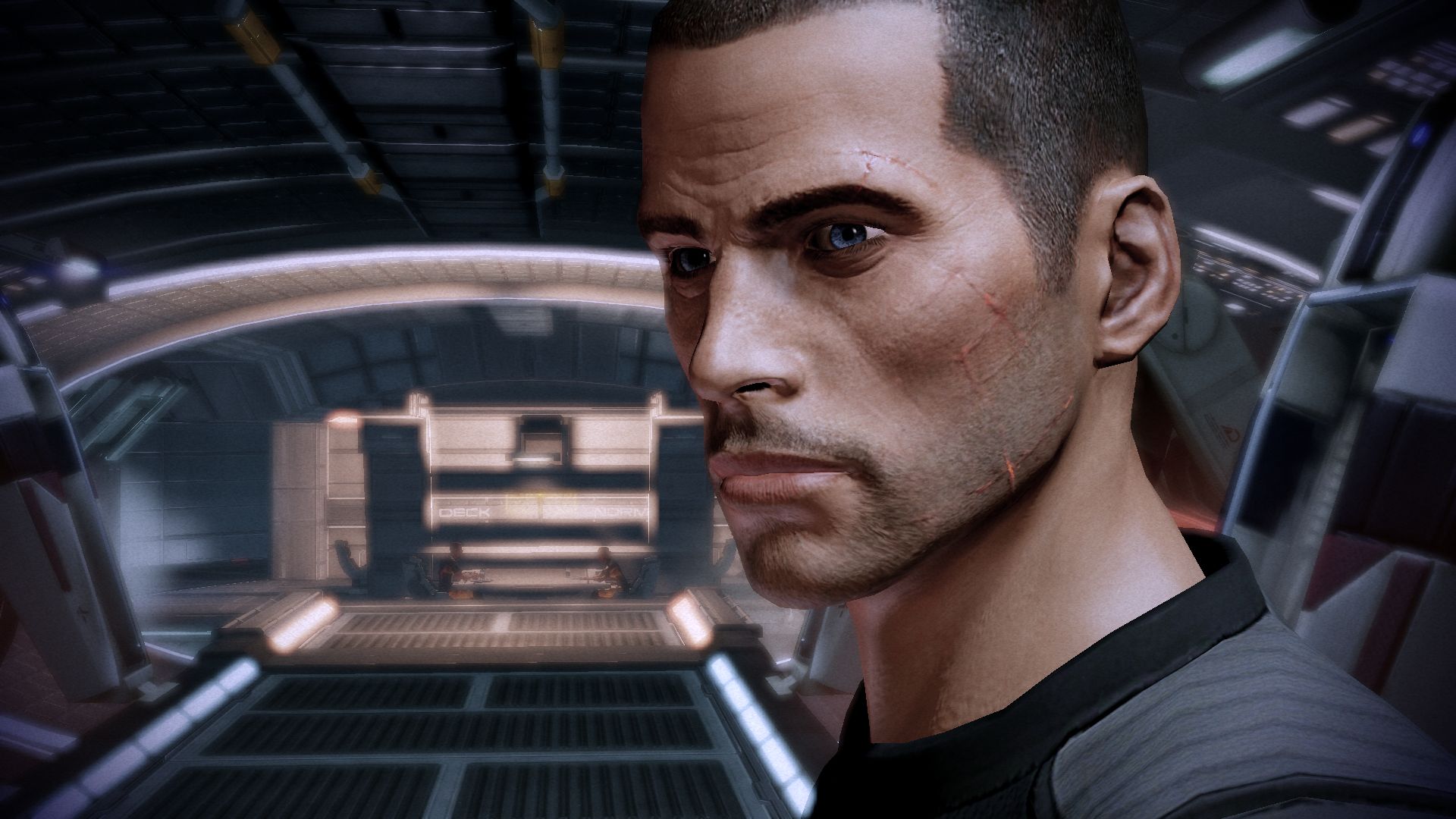
The bugbear I have is this: When you choose something on a dialogue wheel, you aren't actually making a decision. You're pointing a weather vane in a certain direction and hoping it pairs with what you want, like selecting wine via roulette.
Keep up to date with the most important stories and the best deals, as picked by the PC Gamer team.
The result is a slow-moving ego-death of whatever concept you had going in. The initial idea of your character is replaced board-by-board into a completely different Ship of Shepard, the plucky, gruff, or heroic vision that the game's developers had in mind.
Even games without a dialogue wheel still carry dialogue-wheel elements. Cyberpunk 2077, an otherwise banger of an RPG, is a good example of this. The improvement is that you get to pick the third personality, a corpo, a nomad, or a streetkid, but it's only a nudge in the right direction. V is still inescapably V. Commander Shepard is always Shepard. The Inquisitor is always the Inquisitor.
Don't get me wrong, I actively like some of these protagonists—but my argument is that these games are weaker for trying to meet me in the middle (I'll be getting to Geralt in a bit, but he's a great counter-example).
We have, each of us, been robbed of unique character concepts we could've built in many of the stories we've explored this past decade or so."
None of them are my characters, so why bother trying to convince me they are? I get to steer the wheel just a little bit, but I'm swapping between a trio of lanes with no real options for complexity, other than the idea that my gruff hero might occasionally crack wise, or punt an orphan out of nowhere.
Make no mistake: We have, each of us, been robbed of unique character concepts we could've built in many of the stories we've explored this past decade or so. There are thousands of unrealised Mass Effect OCs out there—instead, they're all different flavours of Shepard. I weep for what could have been.
Now, this is an issue in RPGs without this pox upon them, too—it's an inescapable part of the genre. But the point remains that games like Baldur's Gate 3 and Dragon Age: Origins offer more options for roleplay and signpost them less, leading to a greater diversity in dialogue choice. You get the best of both worlds: Full understanding of what your character's about to say, without bias-forming colour coding to tell you which Personality Points™ will shift around if you choose them.
And even then, we've seen in Disco Elysium that pre-determined characters, such as Harry DuBois, are made all the better for a lack of a wheel. Harry's his own detective, but within him are multitudes. If you are still trying to meet me in the middle on this gripe, erring away from the wheel is still the better option.
A dearth of imagination
"But what about voices?" one might ask. And, yes, it might be nice to be able to hear the dulcet tones of your protagonist, but I'd like to offer an alternative: Use your imagination, bozo.
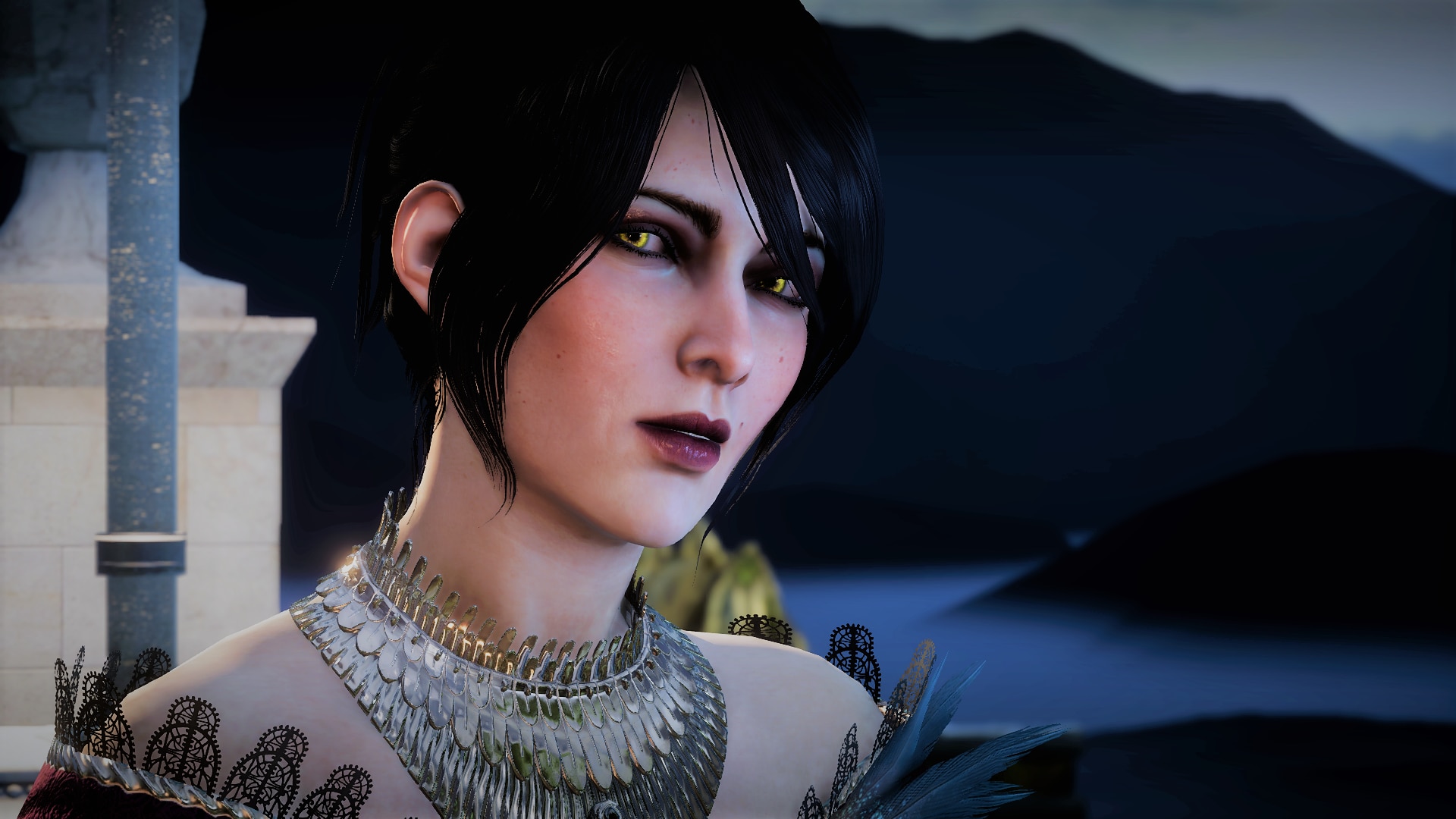
I've seriously never understood this complaint. I always try to figure out what my character might sound like—how they might talk, what tone they might deliver lines in. What the game doesn't deliver to me on a silver, Brian T. Delaney-toned platter, I get to fill in with my brain.
I get that not everybody wants to make a character every time they sit down to play a videogame, and that is absolutely fine. The world is brighter and more beautiful for being filled with people of various tastes, and no game should be made for everybody. But—hey, guess what, there are great protagonist-driven games out there. Some of them are even RPGs!
The Witcher 3's actually a great example of this strategy working out just fine. I don't get to choose a first name for Geralt of Rivia, I don't get to pick his body type, I don't get given a damn thread to pull beyond the occasional choice that steers his story. And you know what? I respect that far more. I'll listen to a story that's been written for me. Just stop teasing me with the idea I can contribute when I actually can't.
In the worst-case scenario, doing this actually shatters the illusion of roleplay entirely. Take Dragon Age: The Veilguard. I found it interesting that I could play a non-binary Qunari with he/him pronouns, because the Qunari themselves come from a binary-gendered society. From a worldbuilding perspective, someone choosing to stick with the language they grew up around, while having a differing sense of self? It felt like something I wanted to explore.
Then, when it came time to explain how he viewed gender to a romantic partner, I was given a boilerplate response that didn't even come close.
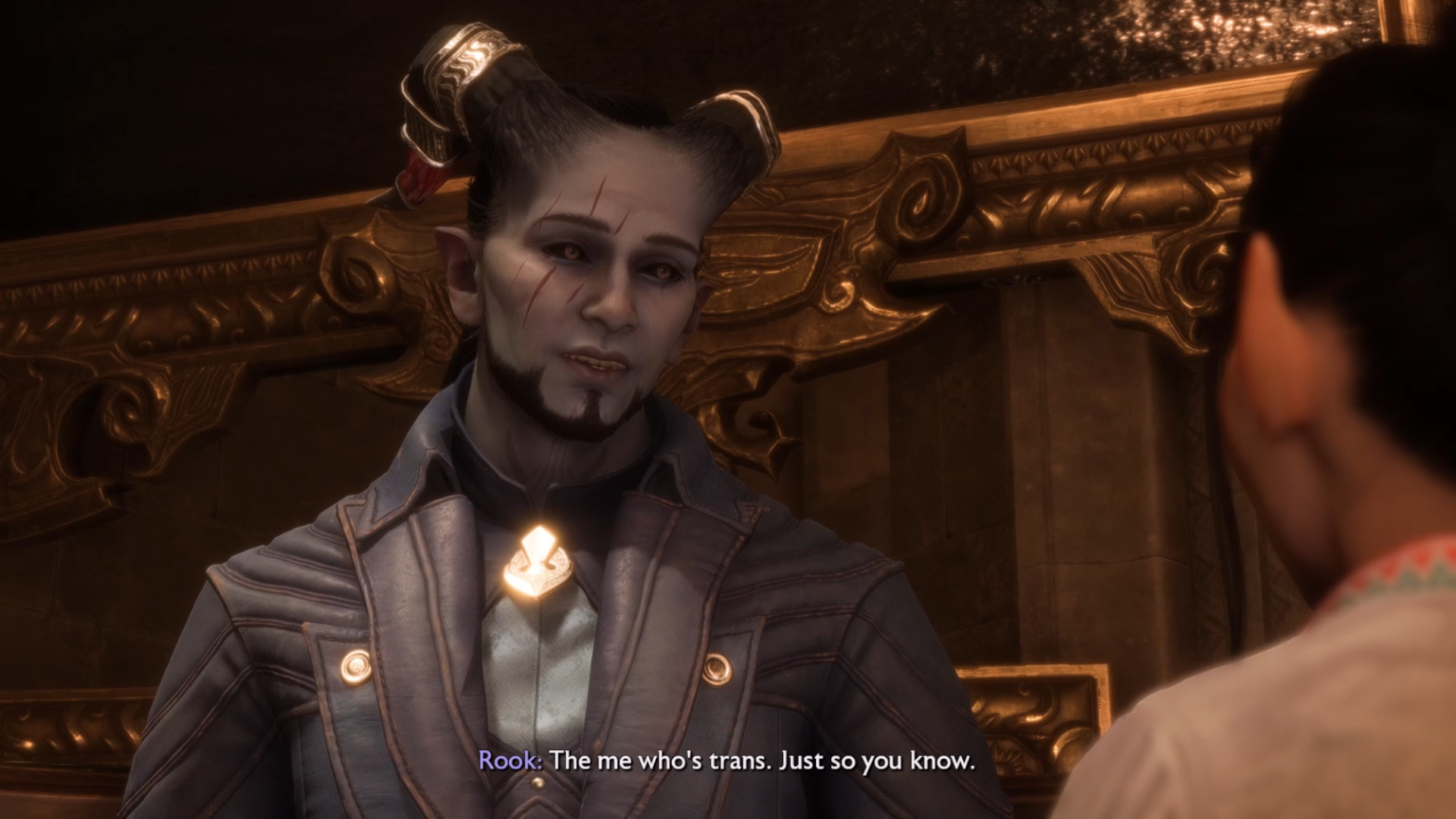
An attempt at inclusion held me, and the cool, gnarled relationship I'd envisioned for my character's backstory, at ruthless, corporate-approved arm's length. And while I'm sure EA's constant back-and-forth on live service nonsense didn't help, or their alleged resentment of writers, I'll place plenty of blame on the dialogue wheel, too.
But I digress. You don't have to care about my fee-fees to see the problem here, right? I was unpleasantly surprised by the dialogue wheel in a way that kinda sucked on a personal level. But the truth is that even when the stakes aren't high, these kinds of incongruencies rise from pre-voiced protagonists all the time. All of these RPGs suffer from being shackled to the dialogue wheel's tyranny.
It's clearly fallen out of favour, mind. The Veilguard felt like the death rattle of my least favourite RPG mechanic, bar it showing up in the next Mass Effect game. And to be clear: I feel dearly for the beleaguered devs who somehow pulled a semi-decent action RPG out of corporate development hell, then got laid off for their trouble.
But the dialogue wheel, as an industry trend? I am glad it's dead and gone. I will consign it to the deepest pits of Tartarus. I will lock its ashes into an urn, wrap it with chains, and send it to the bottom of the briny depths. I shall personally eject its bland, personality-draining existence into the sun. Should it return, I only hope I will be there, bloody blade in hand, ready to plunge my hatred into its very heart.

Harvey's history with games started when he first begged his parents for a World of Warcraft subscription aged 12, though he's since been cursed with Final Fantasy 14-brain and a huge crush on G'raha Tia. He made his start as a freelancer, writing for websites like Techradar, The Escapist, Dicebreaker, The Gamer, Into the Spine—and of course, PC Gamer. He'll sink his teeth into anything that looks interesting, though he has a soft spot for RPGs, soulslikes, roguelikes, deckbuilders, MMOs, and weird indie titles. He also plays a shelf load of TTRPGs in his offline time. Don't ask him what his favourite system is, he has too many.
You must confirm your public display name before commenting
Please logout and then login again, you will then be prompted to enter your display name.

